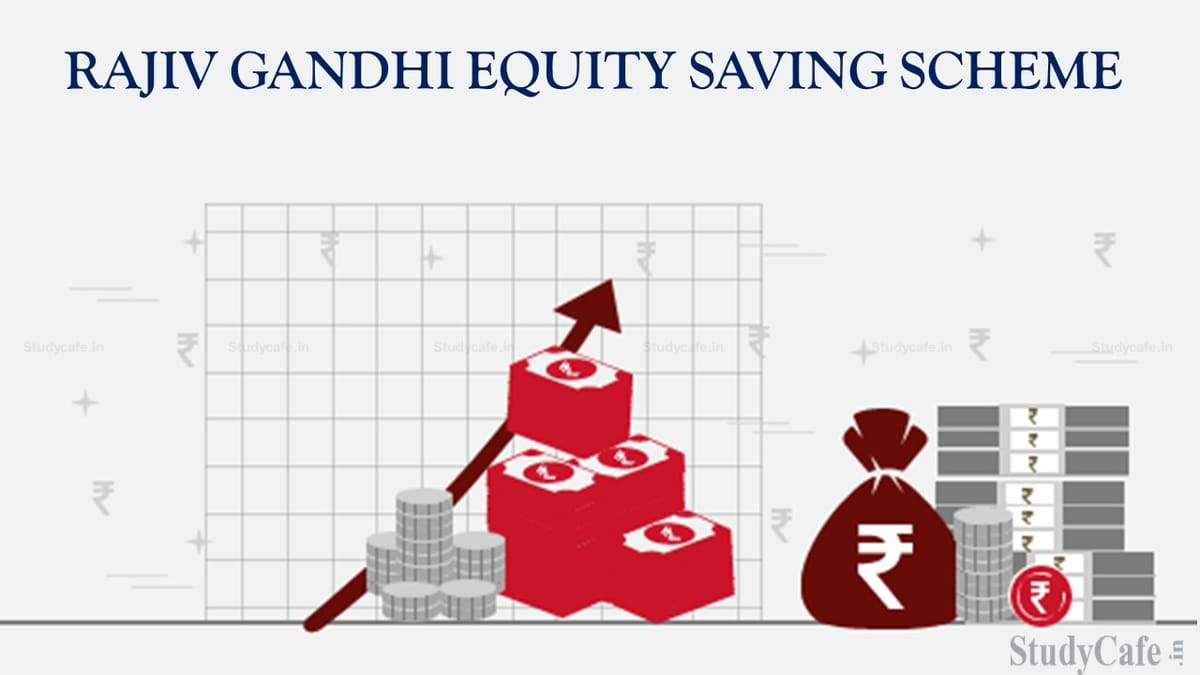Section 80CCG: Rajiv Gandhi Equity Saving Scheme (RGESS)
Deepshikha | May 16, 2022 |

Section 80CCG: Rajiv Gandhi Equity Saving Scheme (RGESS)
The Rajiv Gandhi Equity Saving Scheme (RGESS), which enables a deduction under Section 80CCG for investments in specific equity shares and mutual funds, was created by the government to encourage retail investors to invest in shares and mutual funds.
The deduction granted under Section 80CCG is in addition to the Section 80C deduction of Rs. 1,50,000. These deductions can be claimed when submitting an income tax return, and the taxpayer’s income (after deducting all deductions) will be taxable at the individual’s income tax slab rates.
Individuals and not HUFs are eligible for the income tax deduction under Section 80CCG for investments made through the Rajiv Gandhi Equity Saving Scheme. Furthermore, the individual must be a resident of India and not a non-resident.
To be eligible for a deduction under Section 80CCG, the income of the investor investing in the Rajiv Gandhi Equity Saving Scheme for the financial year in which the investment is made must be less than 12 lakhs.
The Rajiv Gandhi Equity Saving Scheme has a three-year lock-in period for investments. The first year is a fixed lock-in period, followed by two years of flexible lock-in.
During the fixed lock-in term, the investor is unable to sell the securities; but, during the flexible lock-in time, he can sell the assets.
Investors who sell securities during the flexible lock-in period must reinvest in any eligible security for at least 270 days in a year, or maintain their level of investment at the amount for which they have claimed an income tax deduction under Section 80CCG or maintain their level of investment at the value of the portfolio before initiating a sale transaction, whichever is less.
This Section 80CCG income tax deduction is exclusively accessible to new retail investors. Beginning with the first year, the new retail investor may invest in one or more financial years in a block of three consecutive financial years.
The word New Retail Investor means:
Individuals who are the second holder of an account but have no account as the first holder are also eligible to be categorized as new retail investors and can claim a deduction for the Rajiv Gandhi Equity Saving Scheme under Section 80CCG.
Furthermore, it has been established that investors who do not have a Demat account but own physical shares of firms can claim a deduction for the Rajiv Gandhi Equity Saving Scheme under Section 80CCG.
In case of any Doubt regarding Membership you can mail us at [email protected]
Join Studycafe's WhatsApp Group or Telegram Channel for Latest Updates on Government Job, Sarkari Naukri, Private Jobs, Income Tax, GST, Companies Act, Judgements and CA, CS, ICWA, and MUCH MORE!"